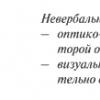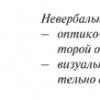Compensation upon dismissal: is it subject to insurance contributions? Leave compensation upon dismissal is subject to insurance contributions. Compensation upon dismissal is subject to the Social Insurance Fund.
Many employees have unused vacation days at the time of their dismissal. According to the law, a citizen has the right to receive monetary compensation for them, the amount of which will be calculated by the accounting department along with the salary issued to the resigning person for the days actually worked. However, compensation for leave upon dismissal is subject to insurance contributions. What does this look like, how much are the contributions and which payments are taxable? It's worth looking at this in more detail.
Compensation is a monetary payment that can replace unused vacation time. When an employee worked instead of weekends and vacations. Compensation must be paid upon dismissal or layoff. Moreover, the possibility of receiving payment is not limited by the reason for dismissal. For example, a manager decided to fire a negligent employee who could not cope with his professional responsibilities. It is formalized as dismissal under the article. All the same, the employee has the right to receive a full payment, which is the actual salary plus compensation.
Important: worth remembering. That such payments are subject to personal income tax and insurance premiums. Therefore, the employee receives the remainder of the compensation after deductions.
Types of taxes and insurance premiums that are subject to compensation
If the amount of personal income tax upon dismissal is established by agreement of the parties, then what types of insurance contributions will be received from compensation:
- pension insurance;
- compulsory health insurance;
- social insurance (if a period of incapacity or maternity occurs);
- insurance against accidents (“injury”).
Moreover, these payments are always accrued if the employee takes compensation.
If the employee was involved in heavy or traumatic work, this affects insurance premium rates.
All contributions are deducted and transferred by the accountant, giving only the remainder to the employee.
What is the amount (%) of insurance payments? A total of 30% is collected from the actual income of an individual, of which:
- pension payments 22%;
- medical penalties 2.9%;
- social payments 5.1%.
And also the first 3 deductions go to the Federal Tax Service, the last payment goes to the Social Insurance Fund.

Taxation of compensation issued to an employee for his unused vacation has its own nuances. To correctly calculate the amount of tax, the accountant needs to know exactly how many days the employee actually worked.
If he has been working at the enterprise for 11 months (of the current year), then he is entitled to a full vacation of 28 days. The accountant looks at how many months the employee who is about to quit has worked. On average, you get 2 vacation days per month. Of course, each organization sets its own number of vacations for employees, which is reflected in the contract, but it should not be lower than the minimum established by law.
Is compensation upon dismissal subject to personal income tax? Yes. In addition to insurance premiums, you also need to withhold a tax deduction.
The personal income tax rate is 13%.
Types of severance payments that are not taxed
As a rule, an employee who is about to quit receives standard payments: salary (actual) and compensation.
Some citizens are entitled to additional leave if they have an irregular schedule and often work overtime. The law stipulates that payment is required for processing. Its size and calculation procedure are specified in the agreement.
Are there payments that should not be subject to any tax?
When the amount is somewhere within three average earnings of a citizen, the income is not subject to taxation.
For people working in difficult conditions (the Far North, miners), the amount of non-taxable benefits was gradually increased to 6 ordinary average monthly earnings.
However, here the employer is obliged to pay the resigning employee total compensation, which includes:
- severance pay;
- average earnings (actual salary);
- deductions that must be paid to the manager, his deputy or chief accountant.
Important: this does not take into account the compensation income that the employee receives for the period of his unused vacation. If the amount exceeds the limit of three months (or six months) of earnings, then payment of insurance contributions and personal income tax is required.
Some employers believe that if an employee is fired from a liquidated enterprise, then it is enough to pay him the rest of his salary. No. It's a delusion. A citizen has the right to full compensation for his unused vacation, and it does not matter why he quits. The manager is obliged to calculate the amount of compensation for him and formalize his dismissal in accordance with the Labor Code of the Russian Federation.
Features of collection and transfer of taxes to the budget
The accounting department deals with taxation issues and transfer of payments. The employee only receives his monthly salary - the remainder after all deductions.
Taxes have an amount and payment deadlines. An individual, not an entrepreneur, as a rule, pays only one tax on his own - on property. Any property owned by a citizen is subject to taxation: a garage, apartment or house.
- Transport tax is paid by car owners; these are annual deductions depending on the cost and year of manufacture of the car. You need to fill out declarations yourself and visit the Tax Committee. However, now you can pay all your bills via the Internet; all you need is a bank card or an e-wallet.
- Income tax is paid by entrepreneurs and people with passive income.
- VAT is a mandatory tax for entrepreneurs; they need to tax the price of products and services.
Tax rates may change; the Tax Code is updated every year. A certificate of the amount and deadline for payment, as well as the code of the required tax, can be found in the code or asked from a tax specialist.
Important: taxes must be paid on time; unscrupulous taxpayers face penalties.
You only need to pay in rubles. Pay either directly to the tax office or through a bank by filling out a form. It is important to provide the details correctly, otherwise the amount will go to the wrong place.

Nuances of the procedure
When can I receive my severance pay upon dismissal? Immediately as soon as the corresponding order is issued. The employee takes it to the accountants, who make the calculation.
Is compensation only due to those who quit? No, any employee has the right to ask to replace his vacation with money. To do this, he negotiates personally with the manager, then writes a statement. The accounting department will make the calculations. It is worth remembering that only unused vacation can be compensated.
Can I count on payments if an employee is transferred? Yes, the organization from which he is leaving will make a full payment to him by agreement of the parties.
Is personal income tax an employee’s “personal” tax? Yes, the employer here acts as a tax committee. And tax is withheld every time from any income received by the employee (salary, compensation).
Is it possible to refuse to pay personal income tax? No. This is a mandatory tax and all employees pay it equally. Only the amount differs, since the tax is calculated based on the amount of the entire compensation or salary.
Is an employee entitled to compensation if he is fired at the time of layoff? Yes. The employer is obliged to make official payments and registration to the employee. Additionally, he may ask for a reference, to which he also has the right.
Any payments to an employee are subject to income tax (personal income tax at a rate of 13%) and insurance premiums (a general percentage of 30%). Both personal income tax and contributions have been paid to the Federal Tax Service since 2017, but the burden for personal income tax falls on the employee, and for insurance contributions - on the employer. Income taxes must also be withheld from payments upon dismissal and insurance payments must be calculated. How is this load calculated from various payments - wages, leave compensation upon dismissal, severance pay?
Payments that an employee may receive upon dismissal include:
- wages – the entire unpaid amount of wages accrued for hours worked at the time of dismissal is issued;
- Vacation compensation is a monetary payment for unused vacation days, if the employee has them. Compensation is issued for all vacation days not spent during the period of work. ;
- severance pay - paid in a number of cases, for example, upon dismissal due to reduction. Also, the issue of payment can be resolved in agreement with the employee. ?
How are these payments taxed with personal income tax and insurance premiums?
Read also: personal income tax on wages, vacation pay, sick leave, financial assistance, bonuses – .
What is personal income tax? If we decipher this concept, then it means a tax on personal income. Every person living in the state, receiving any income, must pay personal income tax to the state treasury. As a general rule, personal income tax for 2017 has not changed and amounts to 13% of total income. It doesn’t matter whether it’s wages or selling a home. It is mandatory to pay income tax. Should an employee pay personal income tax upon dismissal or change of job?
From salary
When an employee leaves his job, he must be paid. He must be paid all the earnings. These include:
- Payment for the modified number of days;
- Bonuses, compensation;
- Other debts to the employee.
The salary paid to an employee must include all items established by the remuneration system. Failure to comply with payment procedures may result in liability for the employer.
Personal income tax is deducted from the total amount. As a general rule, the personal income tax deduction must be made before the employee receives the payment. The employee is given the amount of his salary minus income tax in the amount of 13% of the accrued salary.
For non-cash payments, personal income tax is paid on the day of payment. If payment is made in cash, then personal income tax deduction must occur no later than the date the wages are issued to the employee.
If an advance was previously issued against wages, then income tax must be withheld from it, if this was not done upon issuance of the advance.
With compensation for unused vacation
In accordance with the paragraph of the Instructions on the payment of wages, the amount of monetary compensation for unused vacation belongs to the additional wage fund.
In respect of this compensation, income tax is levied according to the general rule provided for the payment of basic wages - 13% of the compensation. Personal income tax is transferred to the budget on the day the compensation is issued, or the next day.
With severance pay
Personal income tax on severance pay is not paid in full, but in part. Only the amount that exceeds the limit falls under the tax category.
As a general rule, severance pay will be subject to personal income tax if the payment amount exceeds three times the employee’s monthly salary. Personal income tax is not withheld from the benefit amount within 3 earnings.
For RKS, six times monthly earnings are not subject to personal income tax.
When contracting
In case of layoff, the employee must be paid severance pay in the amount of one monthly salary. Personal income tax is not withheld from him. When paying benefits for the second month (if the employee did not find a job 2 months after the layoff), there is also no need to withhold income tax. For the third month, severance pay is provided in agreement with the employment center; personal income tax is also not withheld from this amount.
Upon dismissal, and what about other types of payments? Does the number of payments depend on and are the accruals due for different types of termination of employment relations subject to taxes? It's worth understanding in more detail.
Types of payments, tax withholding and contributions upon dismissal
Insurance premiums are the amounts that the employer pays to extra-budgetary funds so that in the future, if an unforeseen event occurs or the employee retires, there is an opportunity to financially support him. Payments are regular, monthly and are usually represented by a certain percentage rate in relation to the employee's income.
Upon termination of the employment relationship, the employee must be paid certain accruals, the first of which is salary, the second is money for unused vacation. If, upon termination of the employment contract, during any period the worker did not have time to take the required rest, the organization will issue compensation money.
In addition, in some situations the worker is entitled to the following payments:
- redundancy payments;
Sometimes the employment contract provides for other money that the employer undertakes to pay, for example, if the employee has been highly productive for several years.
Accountants are interested in whether it is necessary to withhold insurance premiums for any compensation upon dismissal, and in addition, what taxes are imposed on compensation. The legislation establishes situations and a list of payments from which various payments are charged, and from which they are not entitled to withhold interest.
Unused vacation
Compensation for unused vacation upon dismissal, as well as payment of the same amount when continuing work in the organization, must be subject to taxation and other interest deductions.
Insurance premiums are sent to the following organizations:
- FFOMS;
In total, together with insurance in case of injury, the employer needs to pay 30% of the amount that he is going to pay as a compensated accrual for the employee. Income tax, 13%, is deducted from this payment.
For reference! Income tax must be paid for this type of payment no later than the next day after the cash settlement with the person being dismissed.
Severance benefit

Severance pay upon dismissal is a payment that can be a good support for a dismissed employee. Since any type of this accrual, be it a compensating payment for layoffs or those accruals that the manager will pay under the concluded contract, is not considered income at the legislative level, interest is not withheld from it.
The exception is those situations when the accruals due upon termination of the contract exceed three times the monthly salary. For those categories of workers who work in the Far North or areas close to the same climatic conditions, no interest is deducted from this money if the salary does not exceed six times the salary.
Fact! For taxation, those amounts that exceed three or six times the amount of charges are used.
Compensation for dismissal by agreement of the parties
The payment agreed upon by both parties to the employment relationship is where the most disputes arise. The amount of such an accrual is not established anywhere; in addition, its accrual is not mandatory. Most labor lawyers tend to avoid charging taxes or paying insurance premiums on this type of payment.
But some experts believe that if a certain amount is agreed upon in writing in the agreement, contributions must be paid along with personal income tax.
While the employee is registered in the employer's organization, management must make some deductions from the money paid to employees to insurance organizations and the tax service. Correctly executed accounting entries can help management avoid problems and violations.
Relations related to the calculation and payment (transfer) of insurance contributions to extra-budgetary funds are regulated by Federal Law No. 212-FZ of July 24, 2009 “On insurance contributions to the Pension Fund of the Russian Federation, the Social Insurance Fund of the Russian Federation, the Federal Compulsory Medical Insurance Fund and territorial compulsory health insurance funds."
In Art. 9 of Federal Law N 212-FZ contains an exhaustive list of amounts not subject to insurance premiums for payers of insurance premiums making payments and other remuneration to individuals. This list also includes compensation payments. However, not all compensation payments are tax-free. Let's take a closer look and, if possible, analyze each compensation payment, not.
So, according to clause 2, part 1, art. 9 of Federal Law N 212-FZ are not subject to insurance premiums for all types of compensation payments established by the legislation of the Russian Federation, legislative acts of the constituent entities of the Russian Federation, decisions of representative bodies of local self-government (within the limits established in accordance with the legislation of the Russian Federation) related to:
With compensation for harm caused by injury or other damage to health (clause “a”, clause 2, part 1, article 9 of Federal Law No. 212-FZ).
Please note that payments related to compensation for harm caused by injury or other damage to health also include compensation for moral harm or damage;
With the free provision of residential premises, payment for residential premises and utilities, food and products, fuel or appropriate monetary compensation (subclause “b”, paragraph 2, part 1, article 9 of Federal Law N 212-FZ);
With payment of the cost and (or) issuance of the due allowance in kind, as well as with the payment of funds in exchange for this allowance (clause “c”, paragraph 2, part 1, article 9 of Federal Law N 212-FZ).
It should be noted that, within the meaning of this subparagraph, the object of taxation with insurance premiums is absent only if the allowance in kind, as well as the payment of funds in exchange for this allowance, are provided by virtue of legal requirements and within the limits of legally established norms.
So, for example, reimbursement of the cost of food rations for crew members of aircraft within the limits established by Decree of the Government of the Russian Federation of December 7, 2001 N 861 “On food rations for crews of sea, river and aircraft” and the Procedure for providing catering for civil aviation crews, approved by Order of the Ministry of Transport of the Russian Federation dated September 30, 2002 N 122, provided that there are no specialized public catering organizations at off-base airports (airfields, landing sites);
With payment of the cost of food, sports equipment, equipment, sports and dress uniforms received by athletes and employees of physical education and sports organizations for the educational and training process and participation in sports competitions (clause "d", clause 2, part 1, article 9 of the Federal Law N 212-FZ);
With the dismissal of employees, with the exception of compensation for unused vacation (subclause “d”, paragraph 2, part 1, article 9 of Federal Law N 212-FZ).
Based on this norm, compensation paid for unused vacation associated with the dismissal of employees is subject to insurance premiums. However, if the dismissed employee is paid severance pay in the event of termination of the employment contract in connection with the liquidation of the organization, or in the event of a reduction in the number or staff of the organization's employees, or in the event of termination of the employment contract on the grounds specified in Part 3 of Art. 178 of the Labor Code of the Russian Federation (hereinafter referred to as the Labor Code of the Russian Federation), then this benefit is not subject to insurance contributions. In other cases, that is, on grounds not provided for in Art. 178 of the Labor Code of the Russian Federation, severance pay paid to dismissed employees is subject to insurance contributions.
It should be noted that if the dismissal of an employee was declared illegal by the court and he was reinstated in his previously held position, then the amounts previously paid in connection with dismissal for the period of employment cannot be further considered as compensation payments related to the dismissal, which means and there are no grounds for exempting them from insurance premiums;
With reimbursement of expenses for professional training, retraining and advanced training of employees (subclause “e”, paragraph 2, part 1, article 9 of Federal Law N 212-FZ).
In relation to this norm, we can say that if, for example, employees who successfully study by correspondence in educational institutions of higher professional education with state accreditation are paid for travel to the location of the corresponding educational institution and back once per academic year, then this payment is not subject to insurance premiums. At the same time, payment to an employee on study leave in the amount of average earnings is subject to insurance contributions in the generally established manner;
With the expenses of an individual in connection with the performance of work, the provision of services under civil law contracts (clause “g”, clause 2, part 1, article 9 of Federal Law No. 212-FZ).
Let us note that compensation for the costs of an individual aimed at paying off expenses (documented), for example, under a contract where the work performed was carried out by him in the interests of the customer, cannot be considered as payment for the work itself. This is included in the above subparagraph. In such circumstances, payments aimed at compensating costs (in particular, to pay for travel, accommodation and other expenses at work sites) are not subject to insurance premiums. Therefore, from the total amount of payments under the contract, it is necessary to exclude actually incurred expenses (confirmed by supporting documents - hotel invoices, copies of railway or air tickets, etc.) for moving and living at the place of work under this agreement, if this agreement provides for payment of the mentioned expenses . The exception is daily allowance, which is paid only in the presence of an employment relationship;
With the employment of workers dismissed in connection with the implementation of measures to reduce the number or staff, reorganization or liquidation of the organization, in connection with the termination of activities by individuals as individual entrepreneurs, termination of powers by notaries engaged in private practice, and termination of the status of a lawyer, as well as in connection with with the termination of activities by other individuals whose professional activities, in accordance with federal laws, are subject to state registration and (or) licensing (subclause “z”, paragraph 2, part 1, article 9 of Federal Law No. 212-FZ).
In relation to this norm, we can say that the following are recognized as compensation payments not subject to insurance contributions:
payment of severance pay in the amount of average monthly earnings in the event of liquidation of an organization, reduction of the number or staff of employees of the organization;
payment of average monthly earnings for the period of employment, for a period of no more than two months from the date of dismissal (including severance pay), upon liquidation of the organization, reduction in the number or staff of the organization's employees;
payments made in exceptional cases - in the amount of the average monthly salary retained by the dismissed employee during the third month from the date of dismissal by decision of the employment service body;
payments to the head or members of the collegial executive body of the organization, in the event of termination of the employment contract with them, before its expiration;
With the performance by an individual of labor duties, including in connection with moving to work in another area, with the exception of (clause “and” clause 2, part 1, article 9 of Federal Law No. 212-FZ):
payments in cash for work under difficult, harmful and (or) dangerous working conditions, except for compensation payments in an amount equivalent to the cost of milk or other equivalent food products;
payments in foreign currency in lieu of daily allowances made in accordance with the legislation of the Russian Federation by Russian shipping companies to crew members of ships sailing abroad, as well as payments in foreign currency to crew members of Russian aircraft operating international flights.
It follows from this subclause that payments in cash for work under difficult, harmful and (or) dangerous working conditions, in addition to compensation payments in an amount equivalent to the cost of milk or other equivalent food products, are subject to insurance premiums. Insurance premiums are also paid to payments in foreign currency in lieu of daily allowances made in accordance with the legislation of the Russian Federation by Russian shipping companies to crew members of ships sailing abroad, and payments made in foreign currency to crew members of Russian aircraft operating international flights.
The following compensation payments are also subject to insurance premiums:
Produced to reimburse an employee’s expenses associated with renting housing in connection with moving to work in another area or in cases where an organization, on its own initiative, pays a nonresident employee for rented housing or accommodation in a dormitory.
Carried out by the organization in the form of payment for air tickets for employees or in the form of compensation to employees for the cost of travel from their place of residence to the place of assembly for sending to the rotational camp or from the place of residence to the facility and back.
Unused vacation days of basic and additional rest must be compensated to the employee upon reduction or dismissal. Applicants should remember that compensation for leave upon dismissal is subject to insurance premiums. This type of severance pay will also be additionally subject to personal income tax. So, if an employee is laid off or leaves at his own request, he will receive the amount of payments, taking into account contributions to the funds. Let's consider this issue in more detail.
For any type of dismissal, the employer must compensate the citizen for unused vacation days. But, there is also a situation in which you cannot count on repayment of vacation payments. This is the case when he does not resign of his own free will, but is eliminated under an article for guilty actions.
Art. talks about compensation. 127 of the Labor Code of the Russian Federation, certain nuances are also specified in clause 28 of Rules No. 169, approved. NKT of the USSR dated April 30, 1930
General concepts
Insurance premiums- this is a category of deductions from employee income that must be paid by the tax agent in the form of an employer. These categories of payments are used as security for compulsory insurance. The standard contribution amount is 30%; in 2019, these payments are transferred to the tax office.
Unused vacation days before dismissal can be taken off, or the vacation can be replaced with a compensation payment. Its size is determined taking into account the employee’s average earnings over the last year.
Attention! Vacation compensation at the time of dismissal is subject to insurance premiums in full, regardless of the reason for dismissal. Only those compensation payments received by relatives of a deceased employee are exempt from contributions.
Are insurance premiums charged on compensation payments in 2019?

Most compensation contributions are not subject to personal income tax and insurance penalties. But the legislation excluded compensation for vacation from the category of non-taxable payments. Therefore, insurance premiums in 2017 are collected in the standard manner and in full. This is stated in Law 212-FZ. Deductions are calculated from the amount:
- FFOMS, including contributions “for injuries”.
For further details please refer to Art. 9 of Law No. 212-FZ of July 24, 2009, Art. 20.2 of Law No. 125-FZ of July 24, 1998. You also need to take into account the following regulations:
- Clause 3, Article 8 of the Tax Code of the Russian Federation;
- Article 422 of the Tax Code of the Russian Federation;
- Article 20.2 of Law 125-FZ.
What types of severance payments are not subject to taxes?
In addition to basic income, there is a category of compensation payments that are not subject to insurance premiums. So, at the time of dismissal, the employee is entitled to severance payments. And if the amount is within 3 average earnings of the applicant, then no tax is paid. For employees of enterprises in the Far North and equivalent regions, the amount of non-taxable benefits was increased to 6 average monthly earnings. This possibility is mentioned in Art. 9 of Law No. 212-FZ of July 24, 2009
But in this case we are talking about total compensation, consisting of the following income groups:
- severance pay;
- average monthly earnings for the period of employment;
- payments due to the manager, deputy and chief accountant of the enterprise.
Please note that compensation for unused (main and additional) vacation is not accepted in the calculation. This circumstance is provided for by Letter of the Ministry of Finance No. 03-04-06/44623 dated 08/03/2015. And the amount exceeding the threshold of three months (six months) earnings is fully subject to both personal income tax and insurance contributions.
What fees do you need to pay in 2019?
Previously, we noted that, in general, 30% is collected from the income of individuals, of which
- pension payments amount to 22%;
- medical penalties - 2.9%;
- social payments - 5.1%;
- VNiM.
The first three deductions are paid to the Federal Tax Service, the last payment is to the Social Insurance Fund.
Insurance calculations in 2019 for additional leave
Certain preferential categories of citizens, in addition to the main one, can take out additional leave. Such privileges are granted to employees who have an irregular work schedule. This possibility is guaranteed by Art. 116 TK. For the entire calendar year, they are allocated more than 28 calendar days for rest, this is Art. 115 TK.
Read also...
- Research of the market and the internal environment of the organization The period is placed behind the bracket or before
- Research of the market and internal environment of the organization Point after bracket or before
- Changes in the simplified taxation system in the year
- Electronic invoices and reconciliation reports Correspondence with government agencies



















